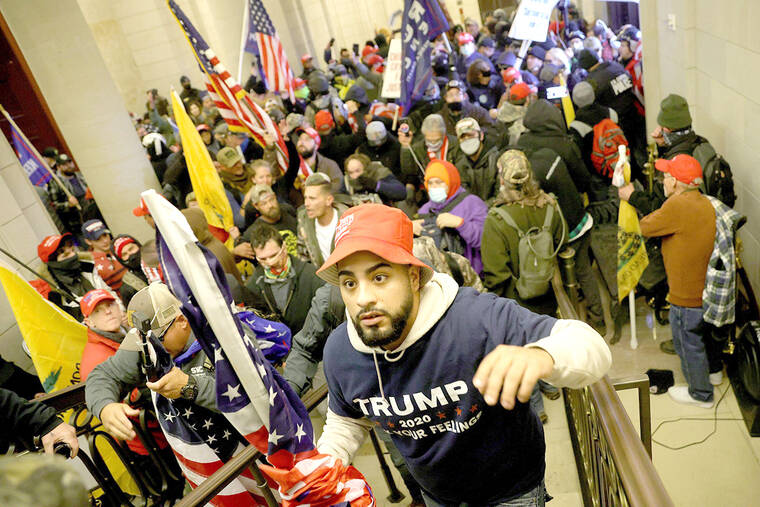The Trump ballot battle: If the 14th Amendment doesn’t block him, voters must
A Denver state judge, Sarah B. Wallace of the 2nd Judicial District Court, was asked if candidate Donald Trump can appear on the Colorado Republican primary ballot or if he is disqualified based on a post-Civil War part of the Constitution meant to exclude Confederate traitors from public office.
At issue is Section 3 of the 14th Amendment, from 1868:
“No person shall be a Senator or Representative in Congress, or elector of President and Vice-President, or hold any office, civil or military, under the United States, or under any State, who, having previously taken an oath, as a member of Congress, or as an officer of the United States, or as a member of any State legislature, or as an executive or judicial officer of any State, to support the Constitution of the United States, shall have engaged in insurrection or rebellion against the same, or given aid or comfort to the enemies thereof. But Congress may by a vote of two-thirds of each House, remove such disability.”
It means that someone who took an oath of office and then broke that oath by joining the Confederacy (or other insurrection or rebellion) cannot hold public office again, unless Congress approves.
Wallace wrote that: “The Court further concludes that the events on and around Jan. 6, 2021, easily satisfy this definition of ‘insurrection’ ” and “that Trump engaged in an insurrection on Jan. 6, 2021 through incitement, and that the First Amendment does not protect Trump’s speech.”
But since the offices of president and vice president weren’t listed along with senators and representatives and electors, Wallace concluded that the disqualification does not cover Trump. She ordered him placed on the March 5 GOP ballot. The case now goes to the Colorado Supreme Court, with the U.S. Supreme Court getting the final word.
Maybe the men who wrote the 14th Amendment meant to include everyone but simply could not have imagined a presidential contender who “engaged in insurrection or rebellion,” but that interpretation will be up to the Supremes to resolve the uncertainty.
What we do know with certainty is that Trump could have been permanently barred from ever holding any public office again, including the presidency, if the Senate had convicted him during his second impeachment trial.
Seven Republican senators joined the 50 Democrats to find him guilty. Still, 57 was 10 shy of the 67 needed for a conviction. Of those 43 Republicans, they all knew he was guilty, having lived through the assault on Congress that he orchestrated. Maybe they thought that since Trump was by then out of office, the danger had passed. It was preposterous at that point to think that Trump could ever return to office. How could he possibly run again?
The preposterous is now happening, with Trump leading the Republican nomination race and fewer and fewer challengers trying to oppose him and the Iowa caucus in seven weeks.
The Senate failed and the courts may not stop him. It’s up to voters to protect democracy


